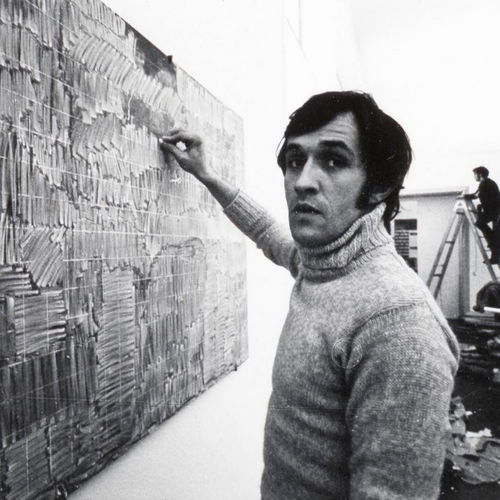
Alighiero Boetti was born in Turin in 1940, where he made his debut in the Arte Povera in January 1967. He was a conceptual artist, versatile and kaleidoscopic, multiplying the types of works whose execution – in some cases – is delegated with precise rules to other subjects and other hands, following the principle of ‘necessity and chance’ - thus the embroideries of letters, small or large, and multicolored. Another sector of Boetti’s work, unmistakably his own, offers in the early ’70s many’ exercises’ on squared paper, based on musical or mathematical rhythms; then on paper, light compositions in which ranks of animals recalling the Etruscan and Pompeian decoration flow. Boetti has exhibited in the most emblematic exhibitions of his generation, from When attitudes become form (1969) to Contemporanea (1973), from Identité italienne (1981) to The Italian Metamorphosis 1943-1968 (1994). He is several times present at the Venice Biennale, with a personal room in the 1990 edition, a posthume tribute in 2001 and a large exhibition at the Cini Foundation in the recent edition of 2017. Among the most significant exhibitions of the last few years the great Game Plan retrospective has been realized in three prestigious locations (MOMA in New York, Tate in London, Reina Sofia in Madrid). Of the ample corpus of works, many Italian and international museums are kept, including the Center Pompidou in Paris, Stedelijk Museum, the MOCA in Los Angeles, etc.).
Sources of photographs: Christie's, Glauco Cavaciuti Arte, Archivio Alighiero Boetti
1940
Born in Turin, Italy.
1962-1964
Moved to Paris.
1967
Joined the Arte Povera movement and had his first solo exhibition at the Galleria Christian Stein in Turin.
1972
He exhibits in Milan and begins to experiment with embroidery on canvas.
1994
Died in his home in Rome.